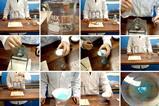Michael Seery continues his critical look at inquiry-based learning
![I stock 000001525239 300tb[1]](https://d1ymz67w5raq8g.cloudfront.net/Pictures/480xAny/6/4/8/113648_istock_000001525239_300tb1.jpg)
In my previous post outlining the case against inquiry-based learning I referenced William Reville's critique of modern education methods. In a letter responding to that Irish Times article, teacher Ciara McMackin wrote:
If I intended to educate my students to be best able to follow instruction, regurgitate information and to excel in a 19th-century factory-style working environment … then certainly, modern teaching methods are not my best option.
Much of the criticism of traditional teaching methods and motivation for alternative approaches centres around this point. The world we live in and the environment students ultimately graduate into has changed substantially, even within the last few decades. Access to knowledge is near ubiquitous, and skills such as knowledge application, problem solving and argumentation are ever more important. Thus, international assessment frameworks, such as PISA, have been criticised for comparing countries on the basis of knowledge and recall, rather than application.
It is worth exploring in a little more depth what tests like PISA can tell us. In an interesting paper from Murdoch University, Australia and the University of Nottingham, UK, researchers found that 'science students who report experiencing low levels of inquiry-oriented learning activities are found to have above-average levels of science literacy, but below-average levels of interest in science, and below-average levels on six variables that reflect students’ engagement in science.' The opposite is observed for students who report experiencing high levels of inquiry-oriented learning.
Finding the middle ground
This highlights the dilemma at the heart of this debate. A highly teacher-centred approach could leave students informed but lacklustre about the topic and unengaged, whereas a highly student-centred approach could leave students without high levels of knowledge as assessed by such tests. I don't think anyone would suggest that the (oversimplified) characterisations of either side make for good teaching practice. Indeed most of the comments and responses from practicing teachers to the previous article demonstrated that real teachers in real classrooms find a sensible middle ground.
How can we characterise this middle ground? I don’t think it is enough to say it is just conciliation between the two sides of the debate. More likely, it is an understanding by teachers that the task of teaching involves the gradual and ongoing shift in student understanding of a topic, providing support and input as required. While it may appear to a student that a process is unguided, the informed teacher will be monitoring and scaffolding a learning process.
This point was emphasised in a substantial response to the article by Kirschner criticising inquiry based learning mentioned in the previous post. The authors of the response criticise the concept (pdf) that inquiry-based learning involves minimal guidance. Instead, they argue that strategies such as inquiry- and problem-based learning require and integrate substantial scaffolding by the teacher. This scaffolding enables students 'to engage with complex tasks that would otherwise be beyond their current capabilities', partly by decreasing cognitive load.
The zone of proximal development
We can characterise this approach under the umbrella of constructivism, and I have found the writing of Keith Taber very useful in coming to my own understanding of how human learning occurs and how we, as teachers, can facilitate it. In an excellent book chapter (available on his website) Keith argues that meaningful learning takes place when students are challenged to approach something just beyond what they currently know, but within reach – known as the zone of proximal development (ZPD). Teachers have the task of scaffolding students' approach to this new learning, acknowledging that different learners will have different starting points and differ in how far they can reach. Such scaffolding takes the form of modelling, guiding, hinting, etc. So effective, constructivist, inquiry teaching will, Keith writes:
carefully guide the learning about the logic and methods of enquiry, ideally so that each student is working within their ZPD … there may appear to be minimal guidance in terms of actual enquiry directions and decisions taken by students, but at a meta-level, the learning is being carefully monitored and scaffolded in terms of understanding inquiry processes, and the tools made available to make and execute those decisions.
Inquiry-based learning is a tough task, not least for the teacher. But given the documented benefits in terms of student interest and engagement, as well as the alignment with a learner-centred robust educational theory, it must be one we consider incorporating into our curriculum.














No comments yet